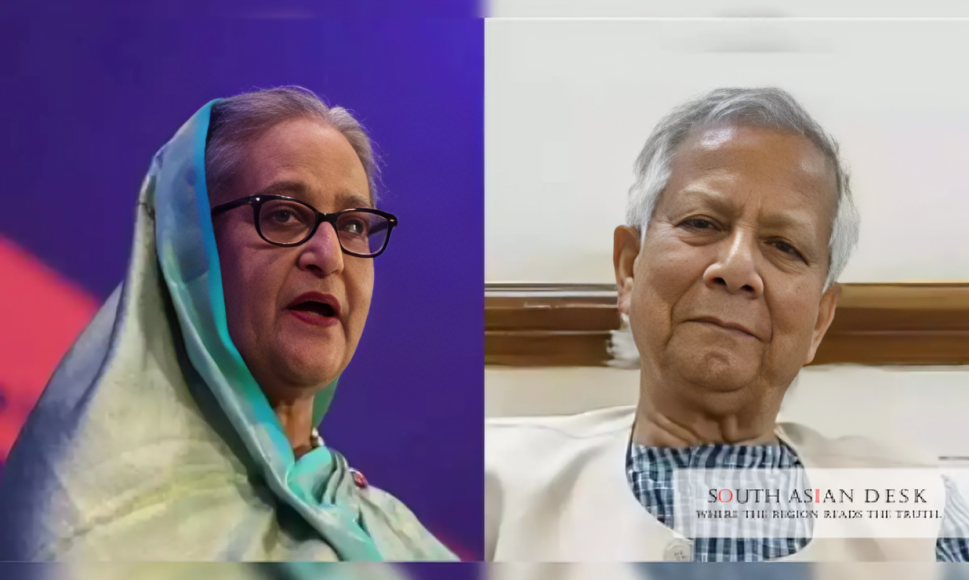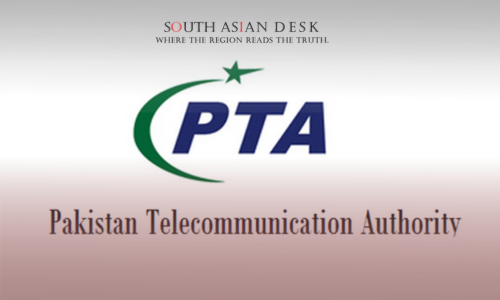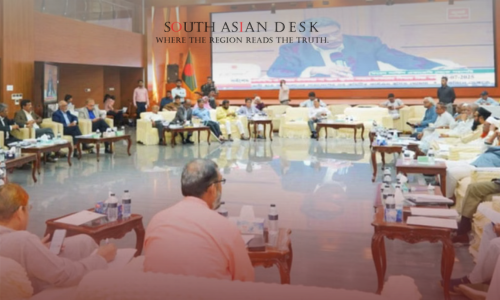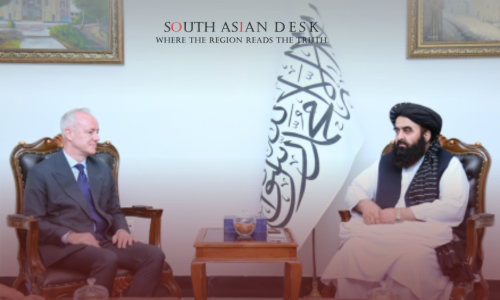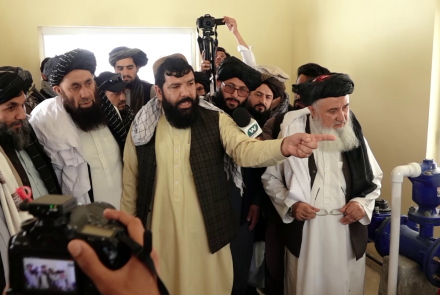Six human rights organisations have urged Bangladesh’s interim government, led by Chief Adviser Muhammad Yunus, to lift Awami League ban imposed under the Anti-Terrorism Act, citing excessive curbs on freedoms, while pushing for broader reforms ahead of 2026 elections.
The call from human rights groups to lift the Awami League ban highlights escalating concerns over democratic backsliding in Bangladesh, a trend that could destabilise South Asia’s fragile political landscape where authoritarian legacies often hinder multi-party systems and fuel regional tensions.
Details of the Joint Appeal to Lift Awami League Ban
In a joint letter dated Sunday, 19 October 2025, addressed to Chief Adviser Muhammad Yunus, six international human rights bodies, CIVICUS, Committee to Protect Journalists, Fortify Rights, Human Rights Watch, Robert F Kennedy Human Rights, and Tech Global Institute pressed the Bangladesh interim govt on the Awami League ban. The letter commends initial steps post the July 2024 revolution, which ended Sheikh Hasina’s rule, but warns of stalled progress in security reforms and accountability.
The groups argue that the Bangladesh interim govt Awami League ban, enacted in May 2025 under the Anti-Terrorism Act, has led to arbitrary arrests of party members and supporters for peaceful activities. They reference a United Nations fact-finding report from February 2025, which documented systematic repression during protests, including violations by security forces and Awami League affiliates. The UN report recommended refraining from party bans to avoid disenfranchising voters and undermining multi-party democracy.
Key quotes from the HRW joint letter Yunus Awami League include: “End the broad ban on Awami League activities under the Anti-Terrorism Act which excessively restricts freedom of association, assembly, and expression.” The letter outlines 12 recommendations, urging swift action before the 2026 polls.
Broader Human Rights Reforms Demanded
The organisations call for holding perpetrators accountable for abuses over the past 15 years, including enforced disappearances, extrajudicial killings, and torture. They praise the International Crimes Tribunal’s charges against military officers from the Rapid Action Battalion and Directorate General of Forces Intelligence but stress the need for fair prosecutions adhering to international standards. The letter urges a moratorium on the death penalty and full military cooperation with civilian courts.
Security Sector Overhaul
A core demand is disbanding the Rapid Action Battalion, deemed beyond reform due to its history of impunity, and limiting the Directorate General of Forces Intelligence to military intelligence roles. This addresses concerns that unreformed security forces hinder accountability efforts in the wake of the Bangladesh interim govt Awami League ban.
Legal and Institutional Changes
The groups advocate criminalising enforced disappearances in line with the International Convention for the Protection of All Persons from Enforced Disappearance, supporting the Commission of Inquiry on Enforced Disappearances with adequate resources. They also seek reforms to the National Human Rights Commission per Paris Principles for independence.
Further, the letter demands repealing or amending laws like the Cyber Security Ordinance 2025, Anti-Terrorism Act, Special Powers Act, Official Secrets Act, and criminal defamation provisions, which restrict expression. Amendments to data protection ordinances are urged to prevent state overreach.
Press Freedom and Arbitrary Detentions
To protect journalists, the interim government must end arbitrary arrests regardless of affiliation and investigate attacks. The letter calls for dismissing politically motivated cases, including those against Awami League members without evidence.
Background
The Awami League, led by Sheikh Hasina, governed Bangladesh from 2009 until her ousting in August 2024 amid mass protests over a job quota system that escalated into broader demands for reform. The interim government, headed by Nobel laureate Muhammad Yunus, assumed power to stabilise the nation and prepare for elections.
In May 2025, the Bangladesh interim govt imposed the Awami League ban, citing the party’s alleged role in protest violence, as detailed in official announcements. This followed the UN’s February 2025 report, which found evidence of brutal repression, including over 600 deaths during July-August 2024 unrest. The report attributed violations to government forces and Awami League elements, calling for justice and institutional reforms.
Over 1 million Rohingya refugees in Bangladesh, including 150000 arrivals since late 2023, add complexity. The letter urges protecting them from forced repatriation to Myanmar, reducing camp restrictions, and cooperating with the International Criminal Court on investigations.
What’s Next
As Bangladesh approaches 2026 elections, the interim government faces pressure to implement these reforms for credible polls. Failure to address the Bangladesh interim govt Awami League ban could invite international scrutiny, while progress might strengthen regional stability.
Human rights groups urge lift Awami League ban to foster genuine multi-party democracy.
Published in SouthAsianDesk, October 21st, 2025
Follow SouthAsianDesk on X, Instagram, and Facebook for insights on business and current affairs from across South Asia.


